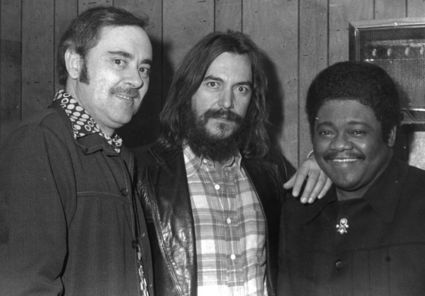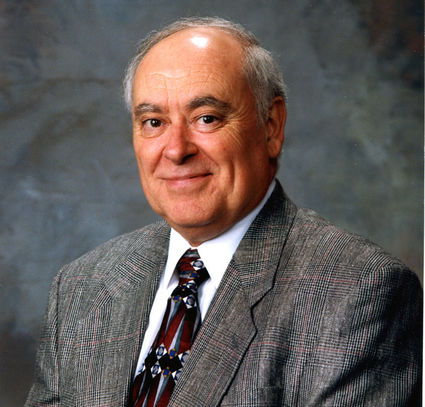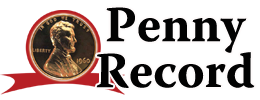Legendary music producer honored
Last updated 1/20/2010 at Noon
Living in Ville Platte, La., Floyd Soileau doesn’t hear about the Gulf Coast Music Hall of Fame very much. He vaguely knew of it because Johnnie Allan, his friend and one of the artists he produced in the ‘60s, is a member.
“I never thought they’d want me,” Soileau, 71, said by phone. “I’m not a musician. I’m not a singer.” Soileau will be inducted at this year’s Hall of Fame show, joined at the Port Arthur Civic Center Saturday by fellow inductee Marcia Ball.
“It’s always nice to get flowers when you’re still above ground,” Soileau said.
To look at any list of Cajun and swamp pop musicians, probably 90 percent have some connection to Soileau.
“I think I’ve produced at least 600 singles,” he said. “In 1956 I was still in high school, and started working part-time at KVPI in Ville Platte. Then I started a little record store within the station (later known as Floyd’s Record Shop). One day this jukebox man came around and asked if I knew of a place to make some records, and I said, ‘Yeah.’ We went to J.D. Miller’s studio in Crowley and the first recording I worked on was for the original Boogie Kings out of Eunice. Then I made a record with Rod Bernard, who had a group that competed against the Boogie Kings.”
That band was the Twisters, and the song – “This Should Go On Forever,” was originally recorded by King Karl. Soileau released it on his Jin label, named for his future wife Jinver.
“With the funds I made off that, I could get married. It set Rod up too. Bill Hall, who had managed the Big Bopper, needed a new artist after the Bopper died. So I introduced them and Bill became Rod’s manager.”
“Forever” had to be rerecorded after the producers of Dick Clark’s “American Bandstand” objected to the line, “If it’s a sin to really love you, then a sinner I will be.”
“This was 1957,” Soileau said. “It was very controversial. When I licensed it to the Chess (Records) people, it was under three conditions. We wanted a $1,000 advance, a guaranteed appearance on Dick Clark and a guarantee it would be played on WLAC in Nashville, which broadcast all over the country back then. We changed the line to ‘If it’s wrong to love you, then wrong I’ll always be.’ And Rod was able to lip-synch the change when he did the show.”
Next Soileau released Johnnie Allan and the Krazy Kats’ “Lonely Days and Lonely Nights.”
“Johnnie was like a Jekyll and Hyde. He was a music professor by day and sang in clubs at night. We didn’t go national with that song but Johnnie did have some success with it ... Later, we cut Chuck Berry’s ‘The Promised Land’ and that was probably the biggest hit I ever had. It developed a huge cult following in Europe and Johnnie toured extensively over there. We got orders for it from Europe, Australia and New Zealand.”
Soileau said his greatest “miss” was Cookie and the Cupcakes’ “Mathilda.”
“I saw the band in a club and told them, ‘I’ve got to get you guys into the studio.’ And they said, ‘We just did it two weeks ago at [George] Khoury’s in Lake Charles.’ I felt so bad about it that eventually I bought the master and licensing rights from Khoury.”
Soileau played a part in Jivin’ Gene’s success on Mercury Records, and Tommy McClain’s “Sweet Dreams” – a million-seller. Boogie King Clint West introduced McClain to Floyd’s family of artists, which by that time also included the Swallow label. Other hits included D.L. Menard’s “La Porte d’en Arriere” (“The Back Door”), a Cajun French song; and in the ‘70s Rufus Jagneaux’s “Opelousas Sostan.”
“They were these young guys, hippies more or less,” Soileau said. “We were going to name them Rufus but then we heard a group on the radio also called Rufus. So we just tacked on Jagneaux.”
When Rockin’ Sidney had his big hit in the ‘80s with “My Toot Toot,” Soileau found himself dealing with nationally-known performers such as John Fogerty and labels such as Warner Brothers. Fogerty wanted to do a video of the song, but only if Sidney played accordion in it.
“Apparently some Atlanta radio stations had gotten hold of the song and started playing it. It just went everywhere after that. Fogerty’s people didn’t have a concept for the video, and I happened to say, ‘Why don’t you shoot it around a crawfish boil?’ – and that’s what they did.”
A rumor got started in the ‘90s that cost Soileau some business. In 1975, he had opened a pressing plant operation, but it was destroyed by fire in 1994.
“A lot of people thought that our studio, record shop and everything was gone. And I kept saying ‘No, no, it’s just where we press the records. Everything else is OK.’ I actually had to buy airtime at KPLC in Lake Charles and other stations to get the word out.”
Soileau continues on with an upcoming collection of Rufus Jagneaux recordings and a re-issue of work by the late Cajun accordionist Lawrence Walker. He keeps up his mail-order business and is on the Internet at http://www.floydsrecordshop.com.
“I’ve really hated to see the demise of the 45 RPM single. The music industry shot themselves in the foot when they did that. Everything is iTunes now. I still think the best way is put out a single and test the market. And if it fails, you go back to the drawing board. It’s a different world now and we’re losing more and more independent dealers. The big discount stores are selling the recordings at such low prices that it’s hard for a lot of ‘mom and pop’ operations to stay in business.”
Advance tickets for the Hall of Fame show are $22 through 11 a.m. Friday at The Penny Record in Bridge City, 333 W. Roundbunch Road, or The County Record in Orange, 320 Henrietta St. Admission at the door is $24 and free to children 12 and under accompanied by an adult. Doors open at 6:30 p.m.
















Reader Comments(0)